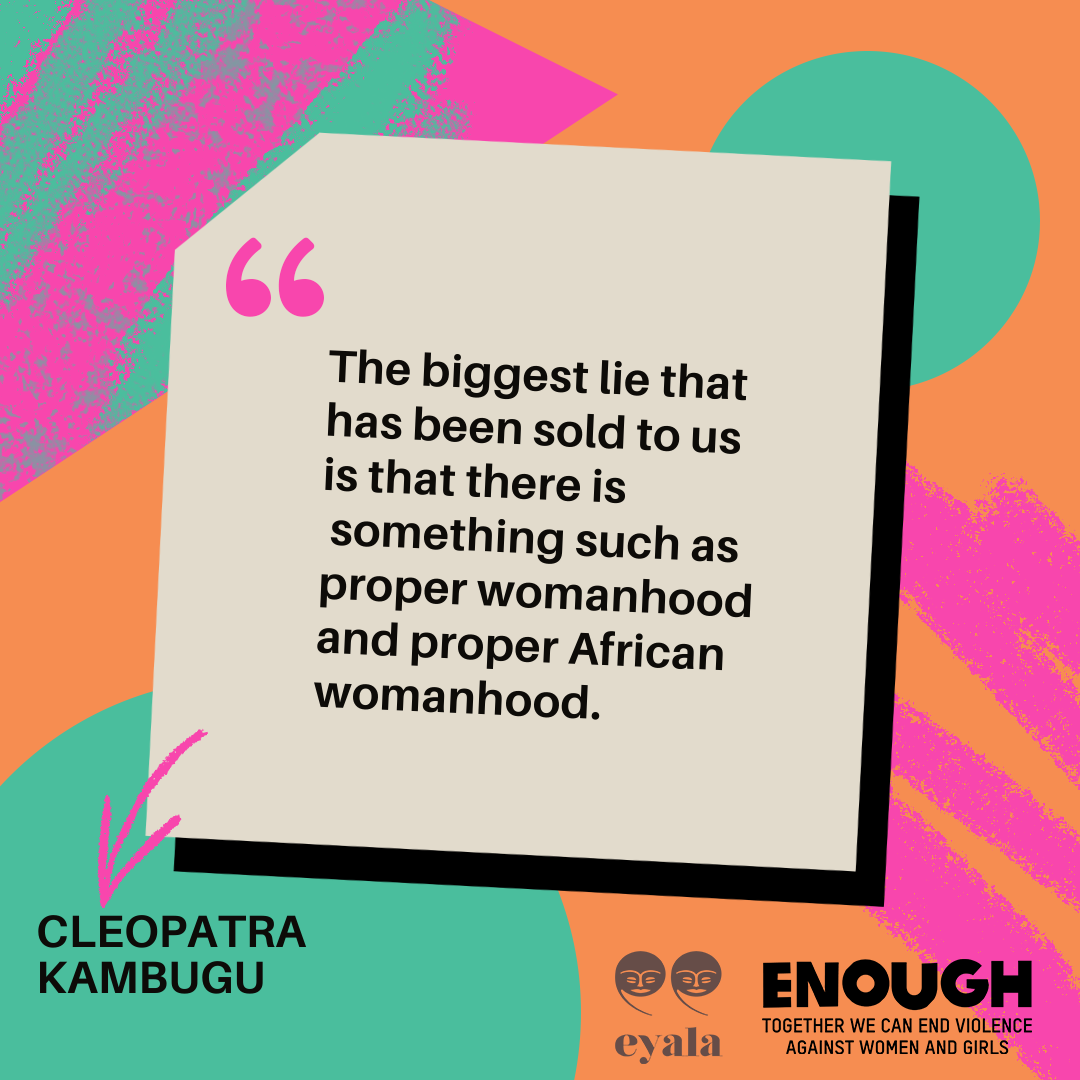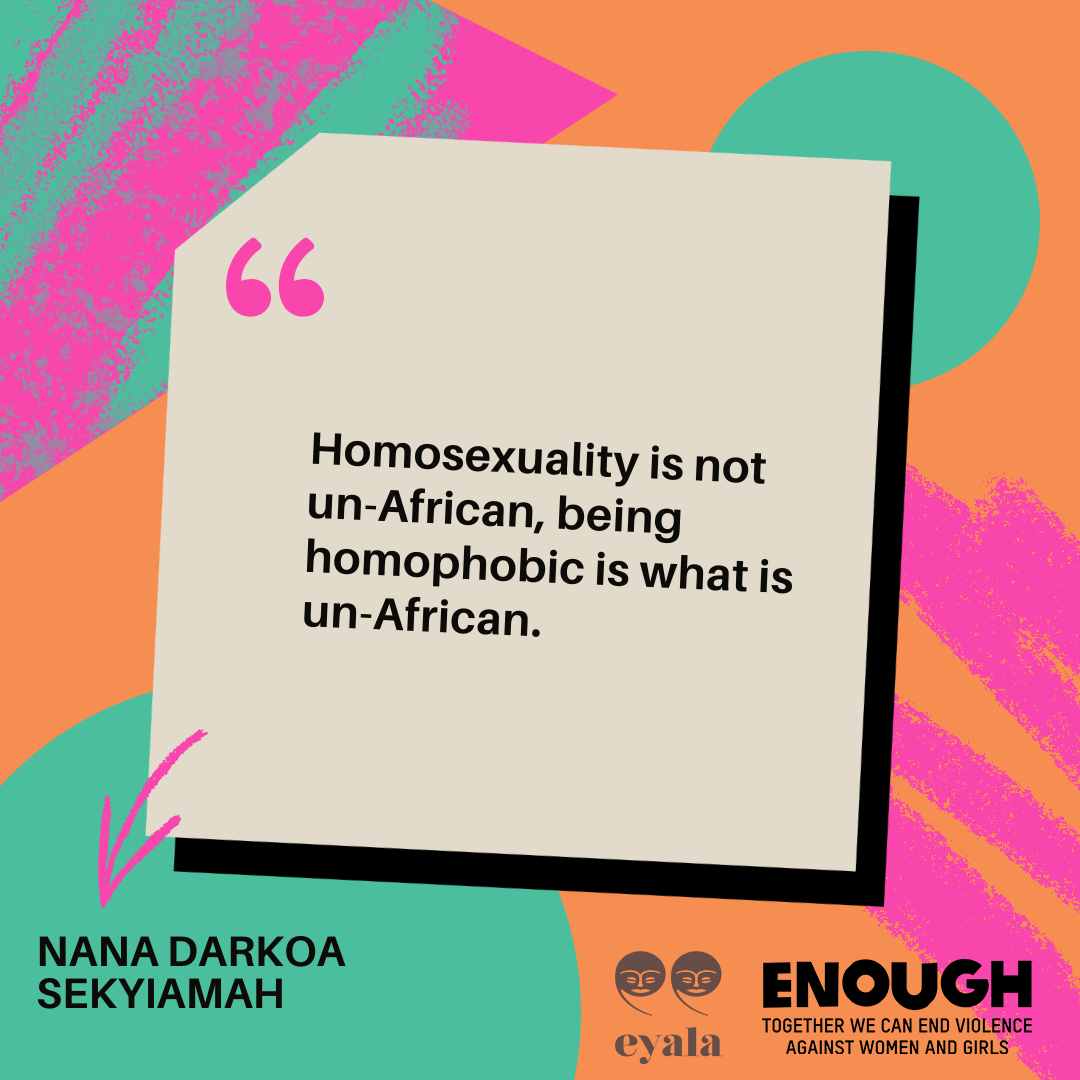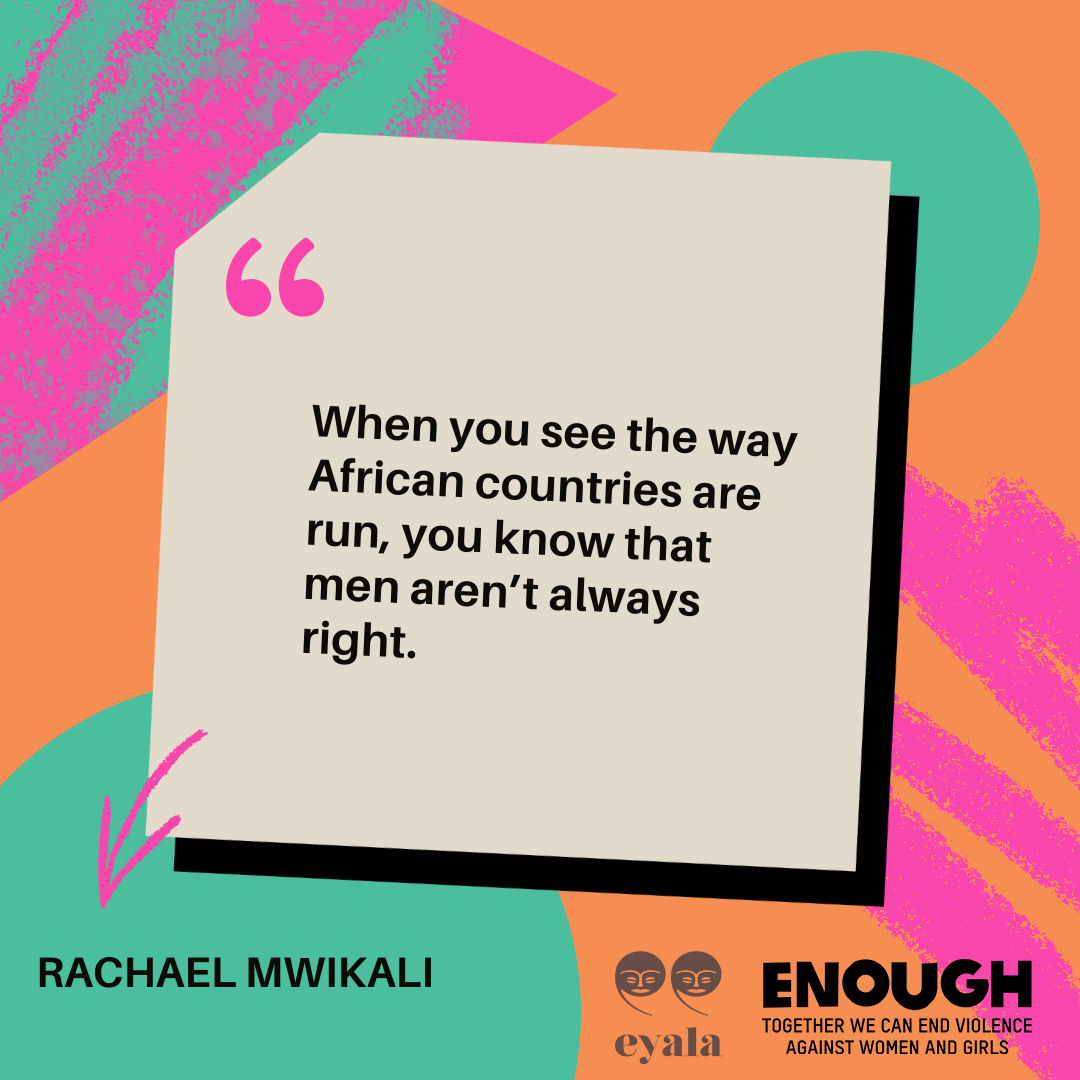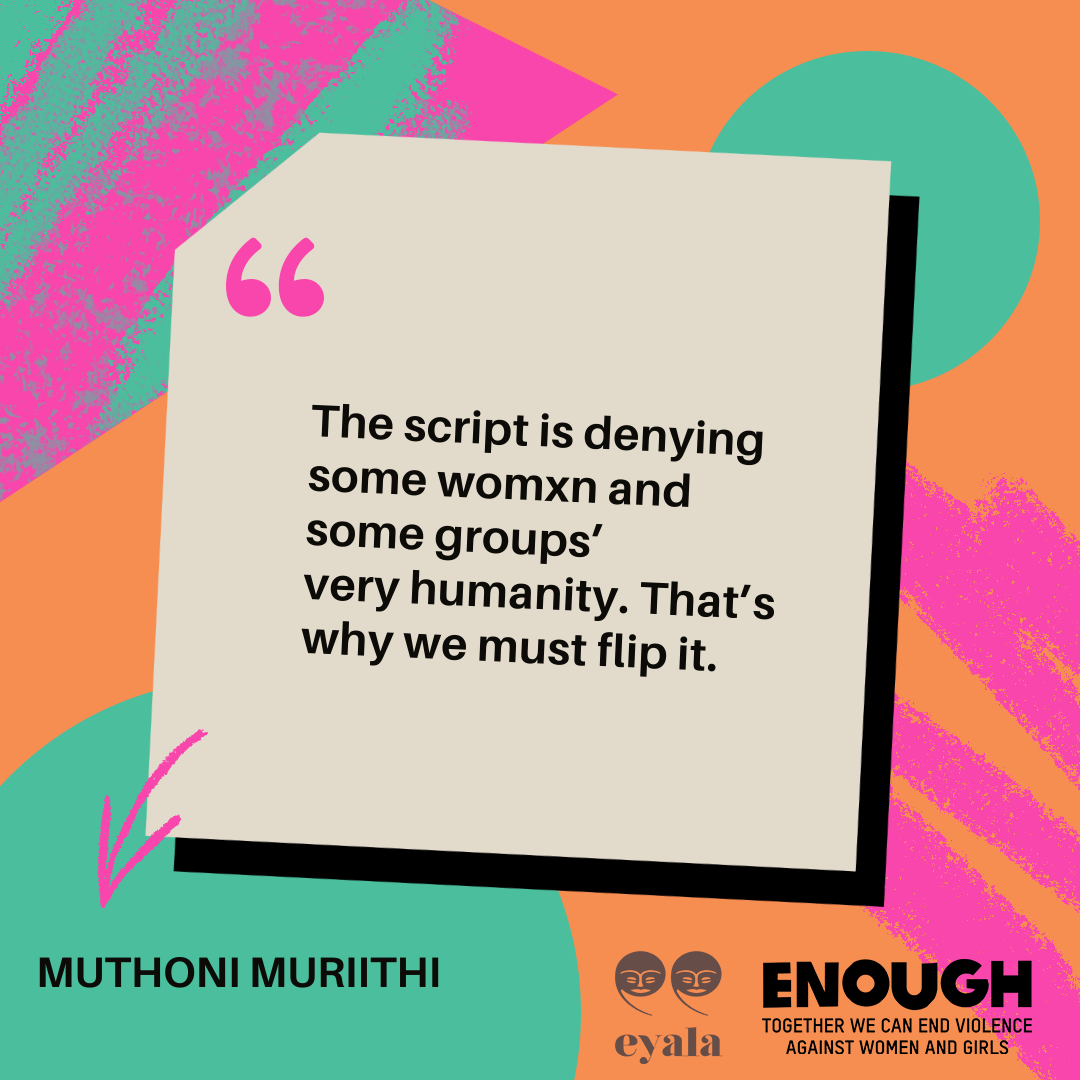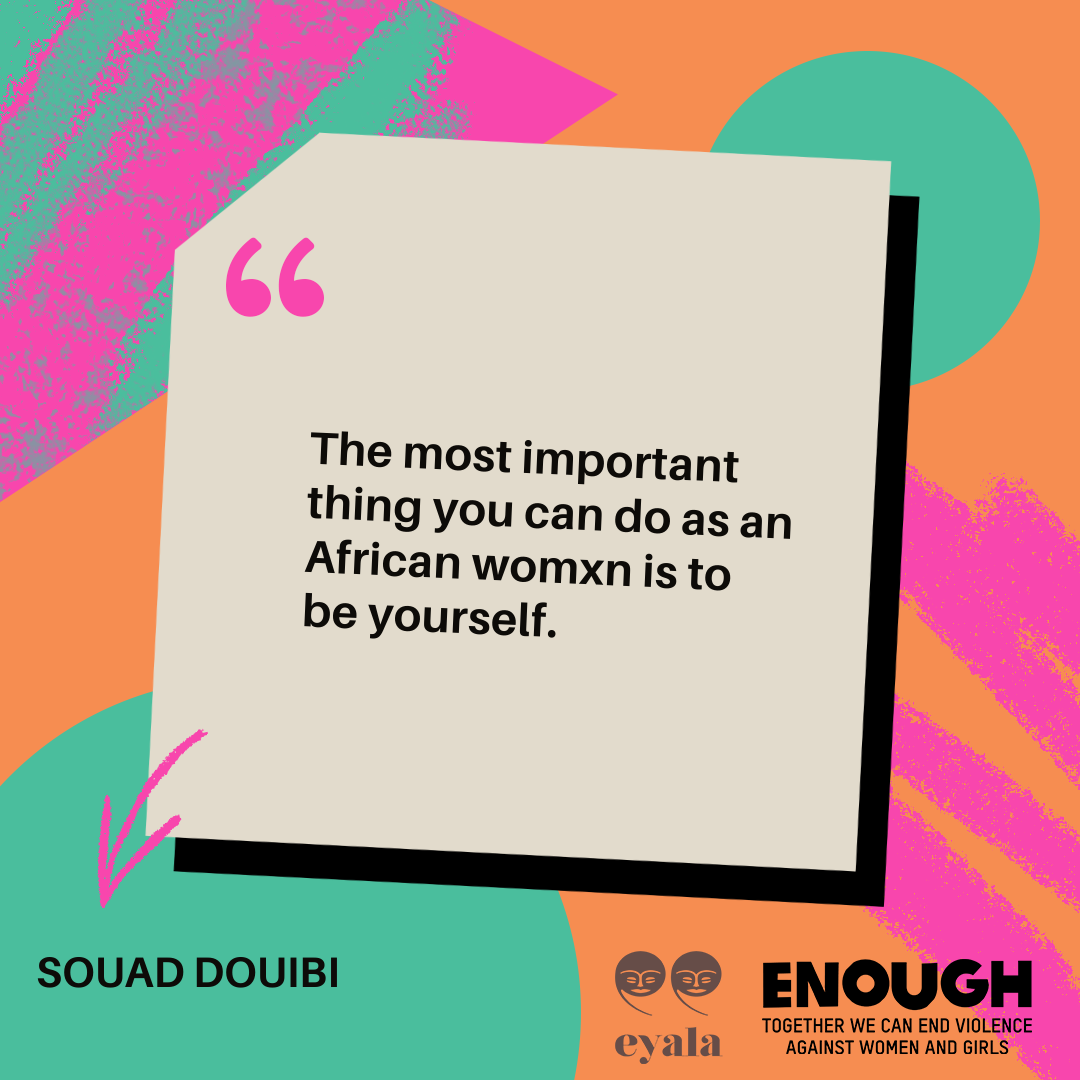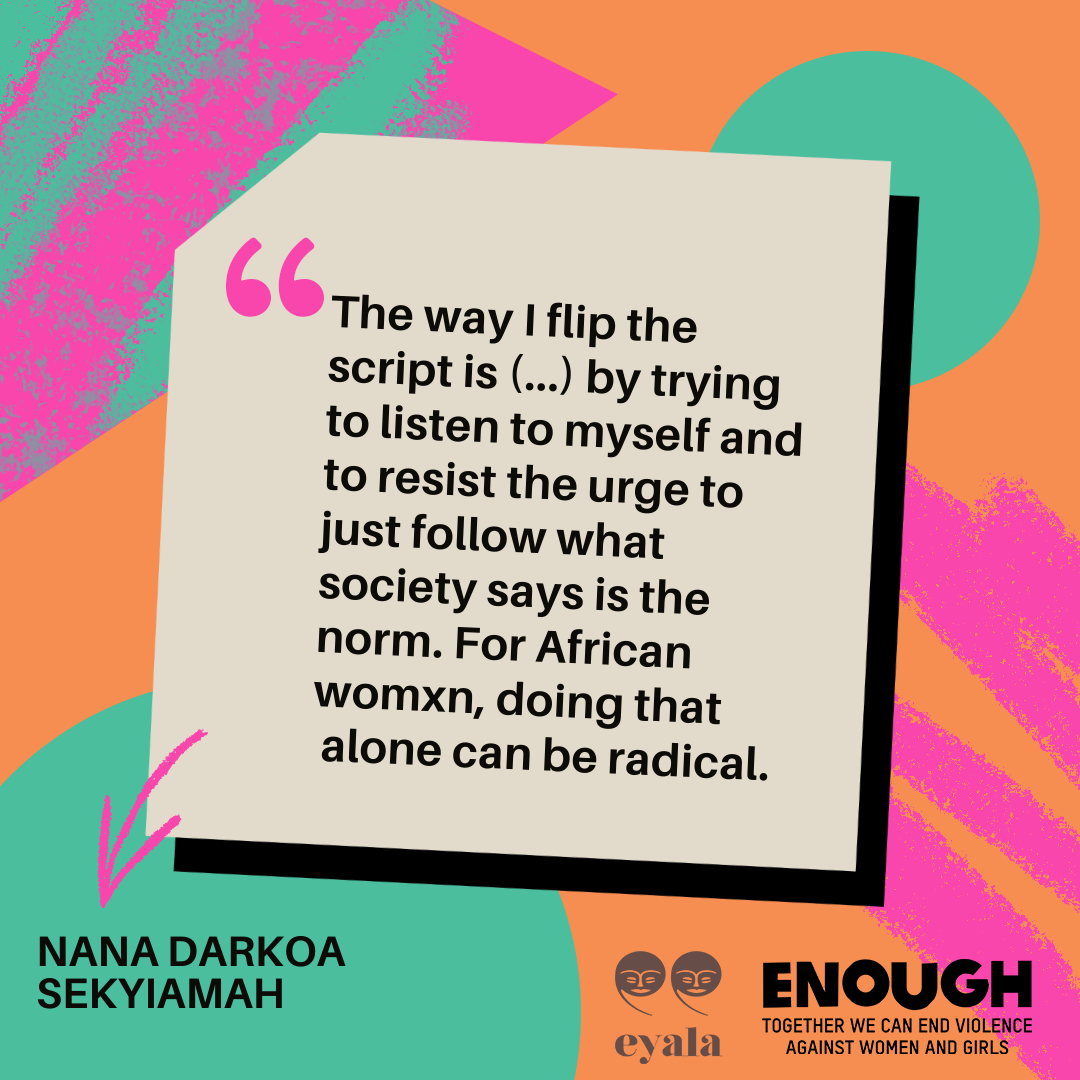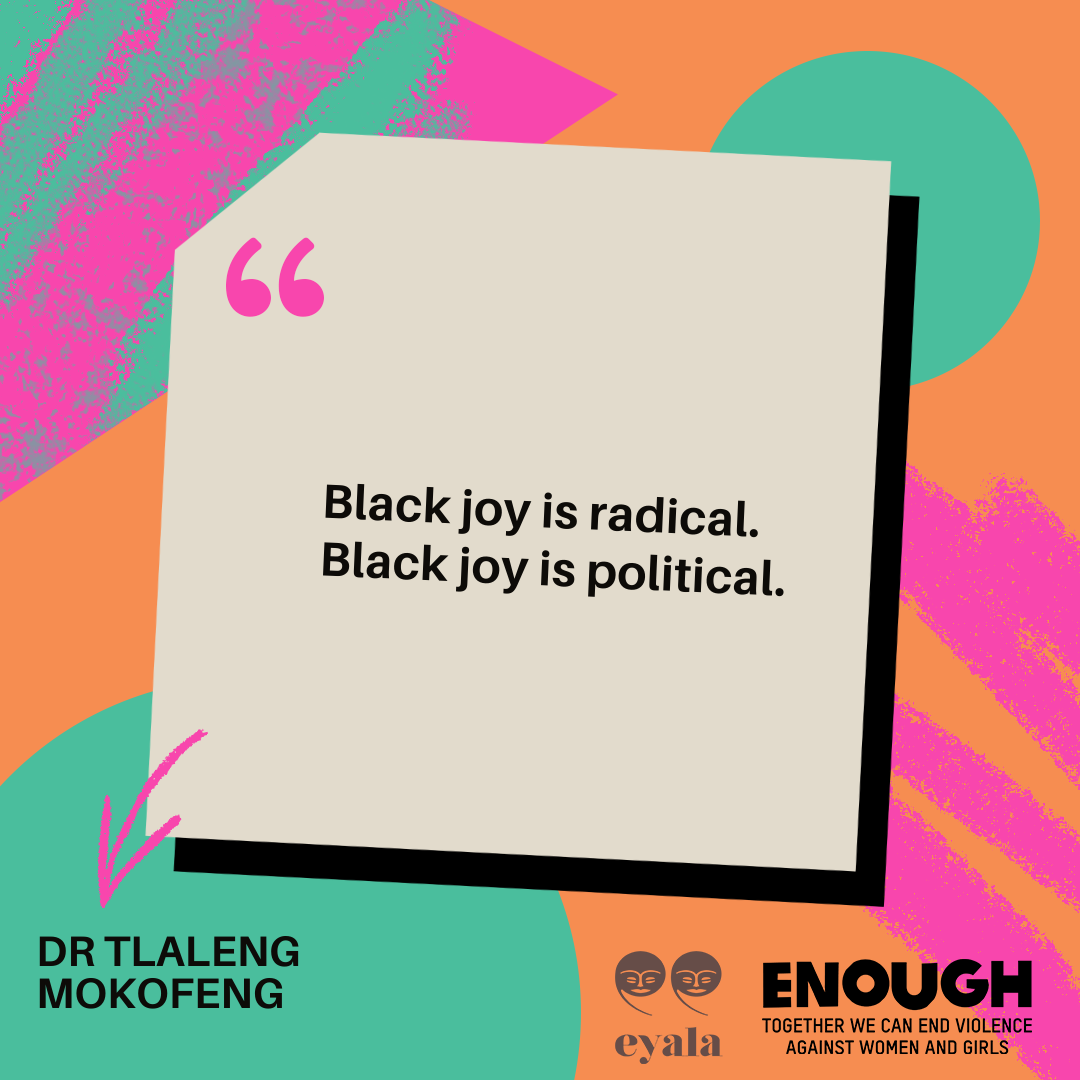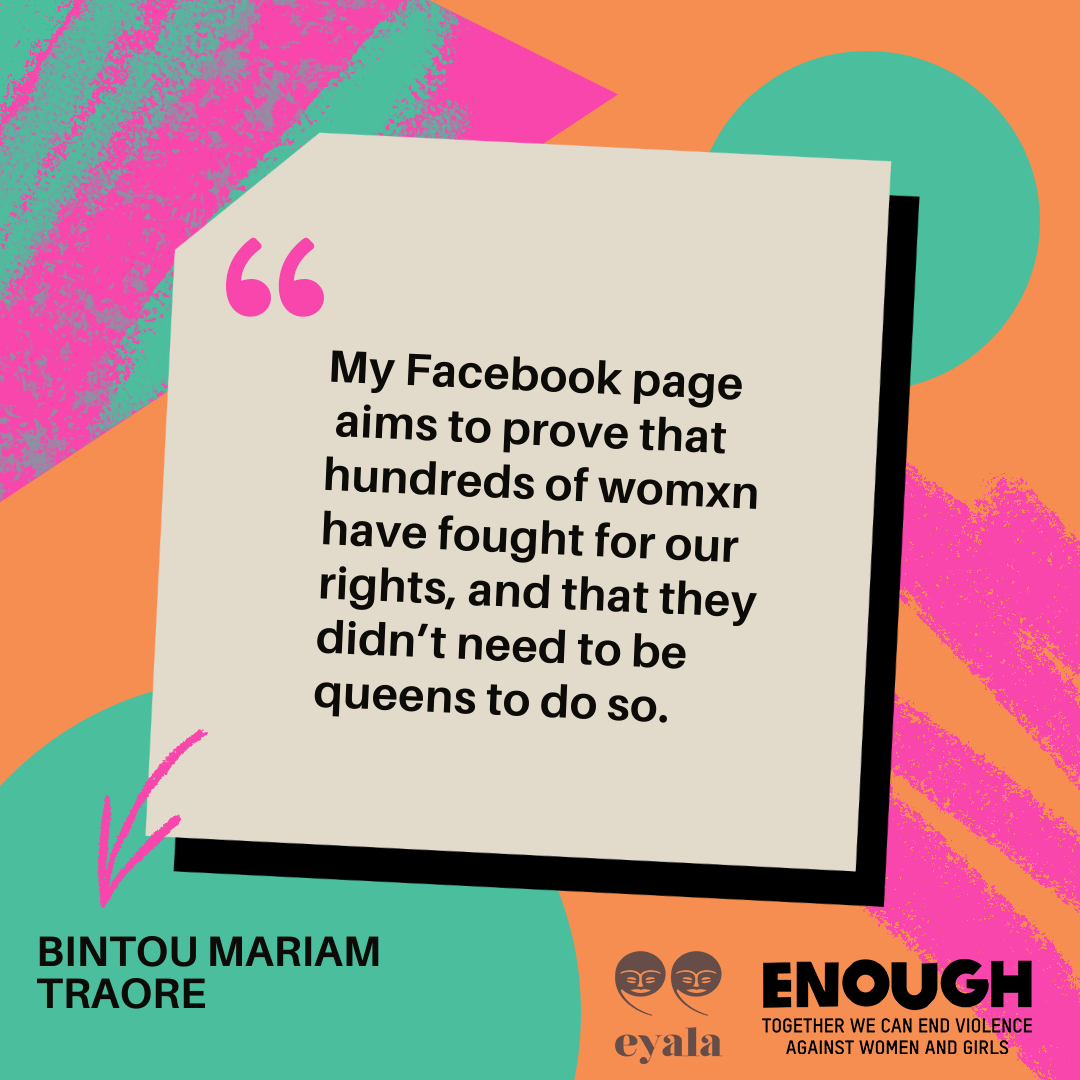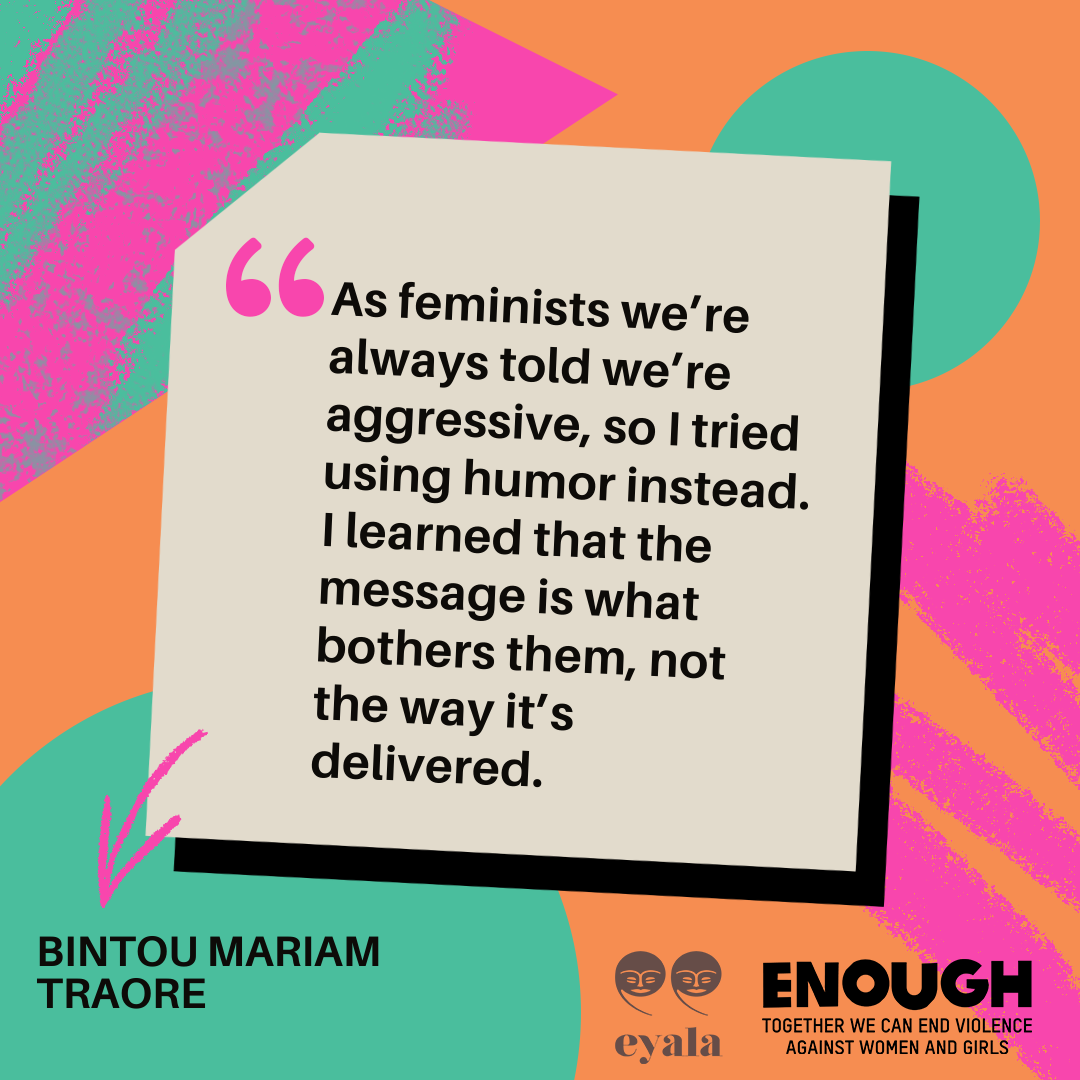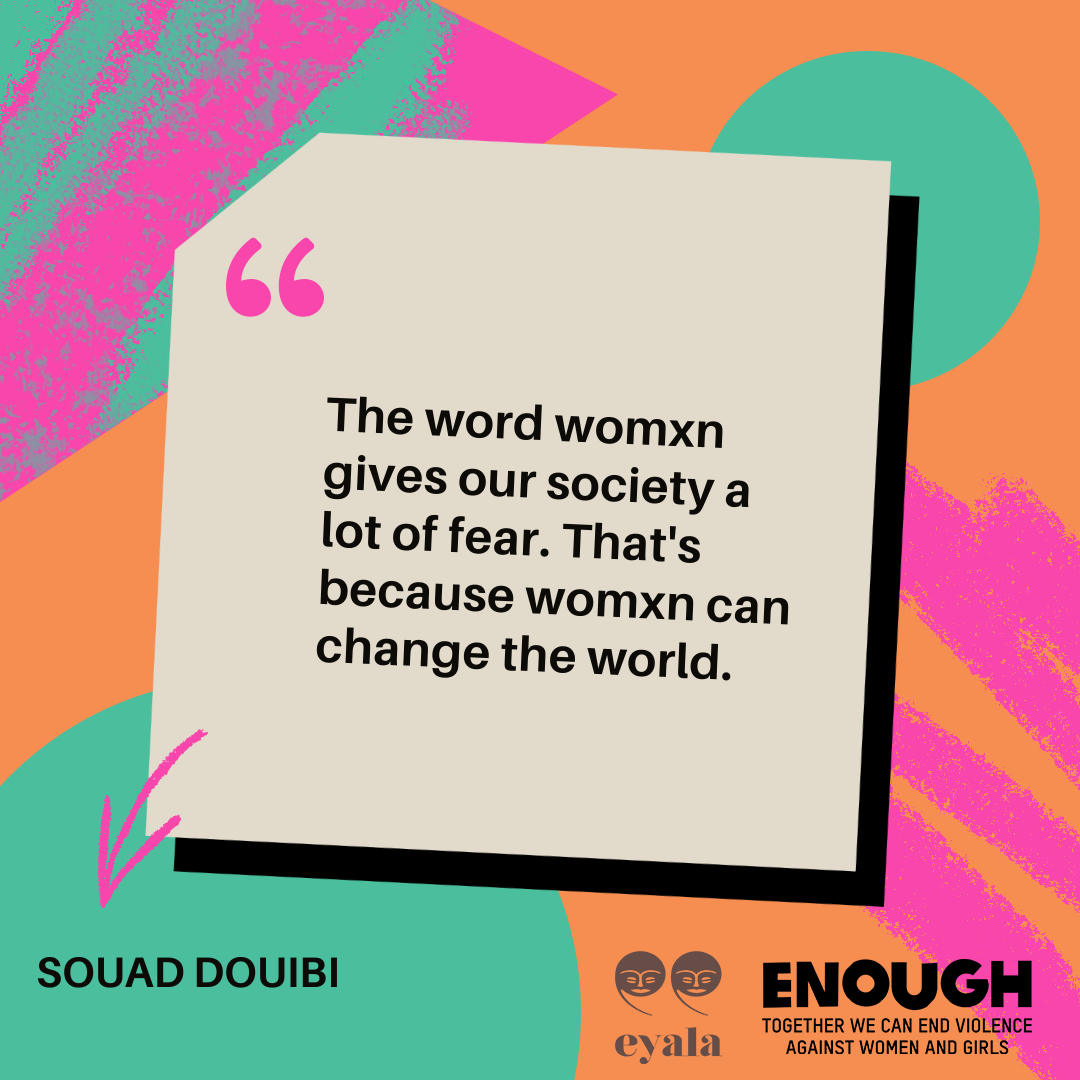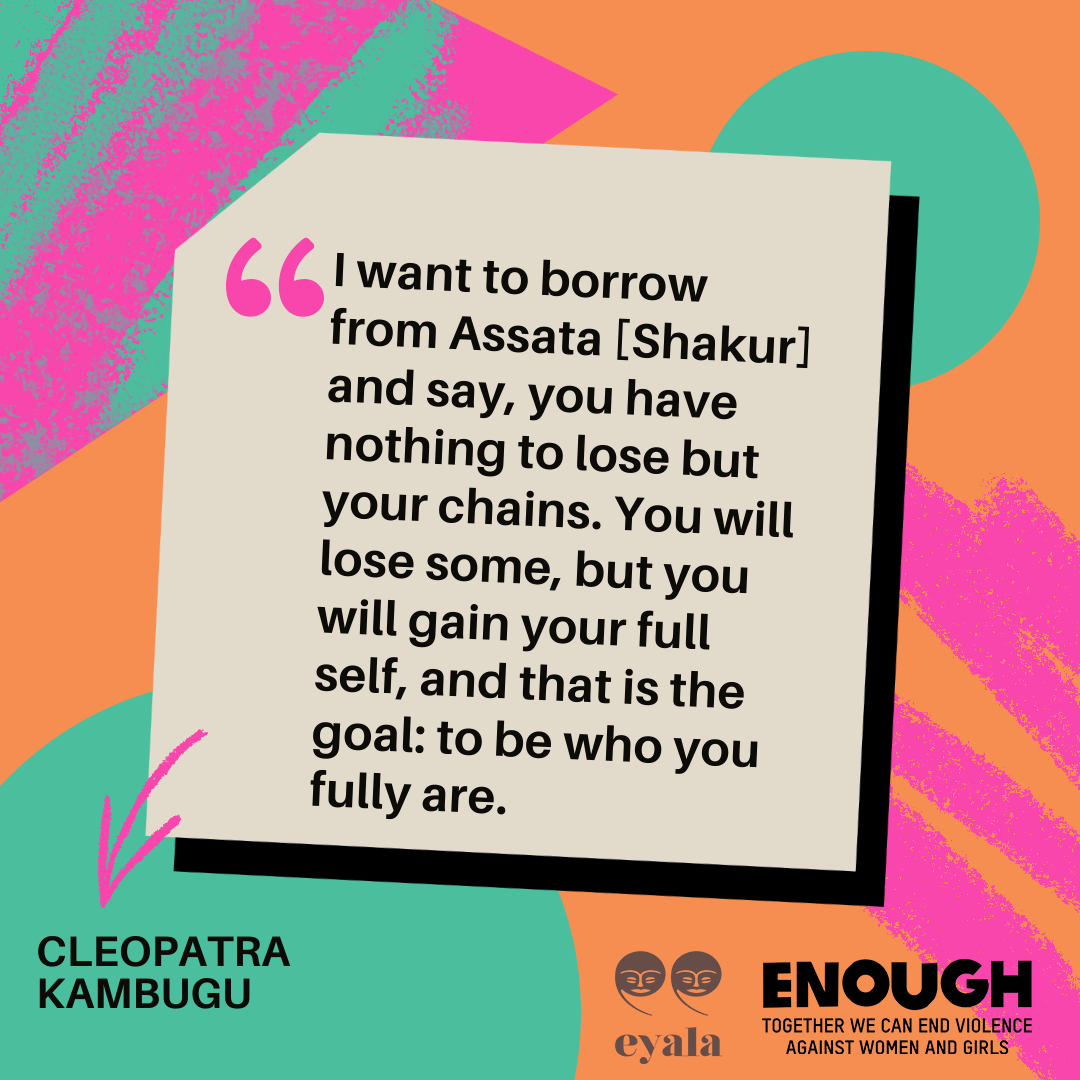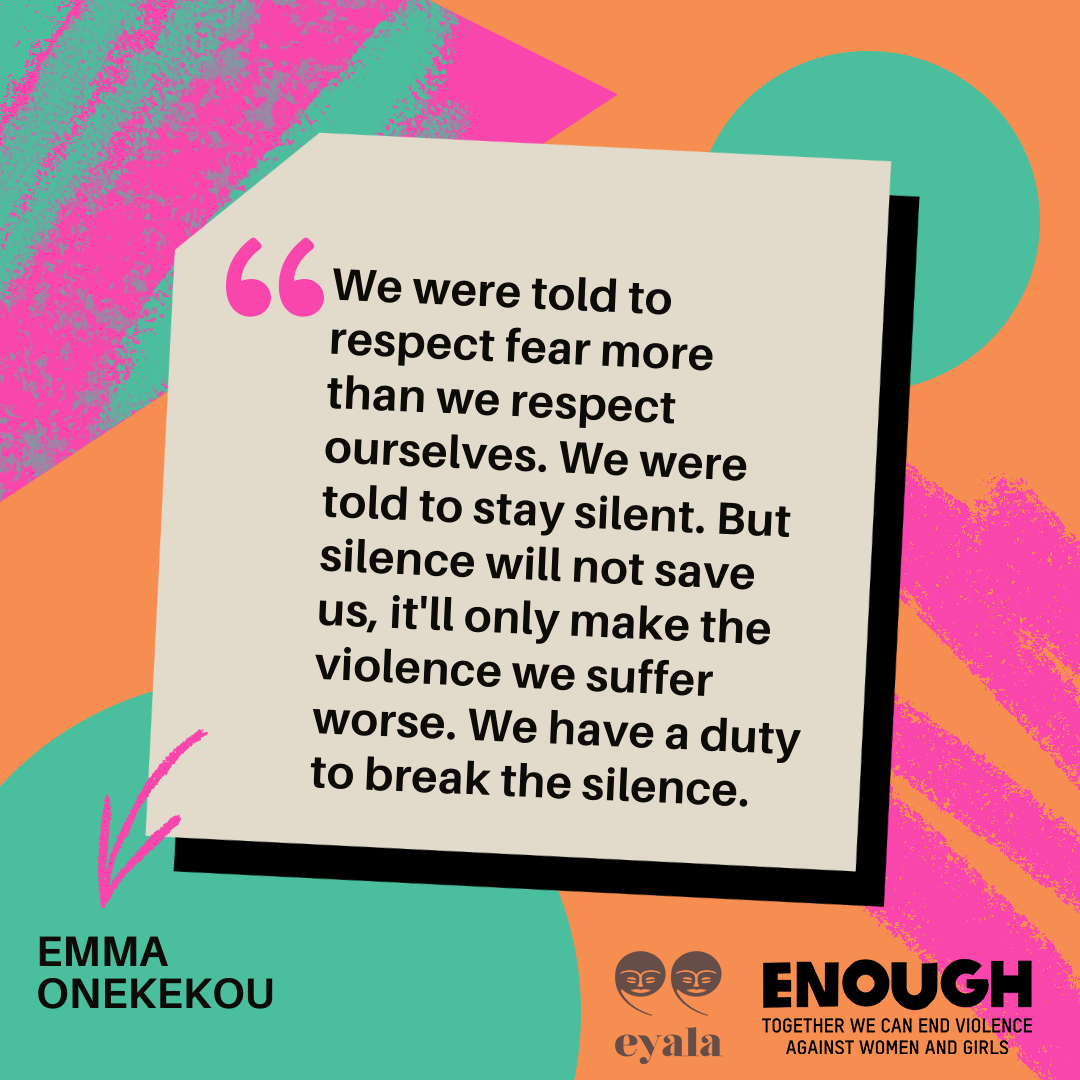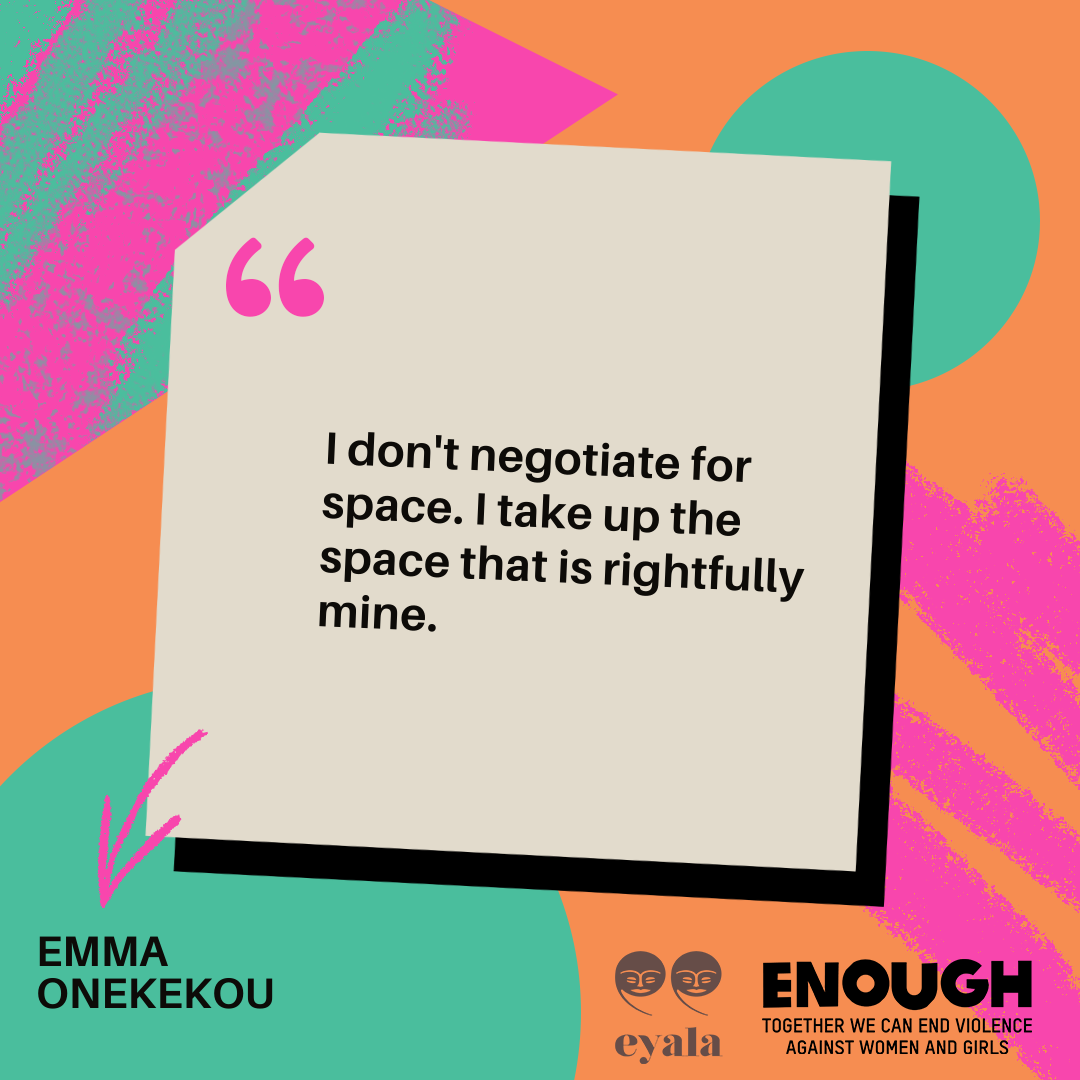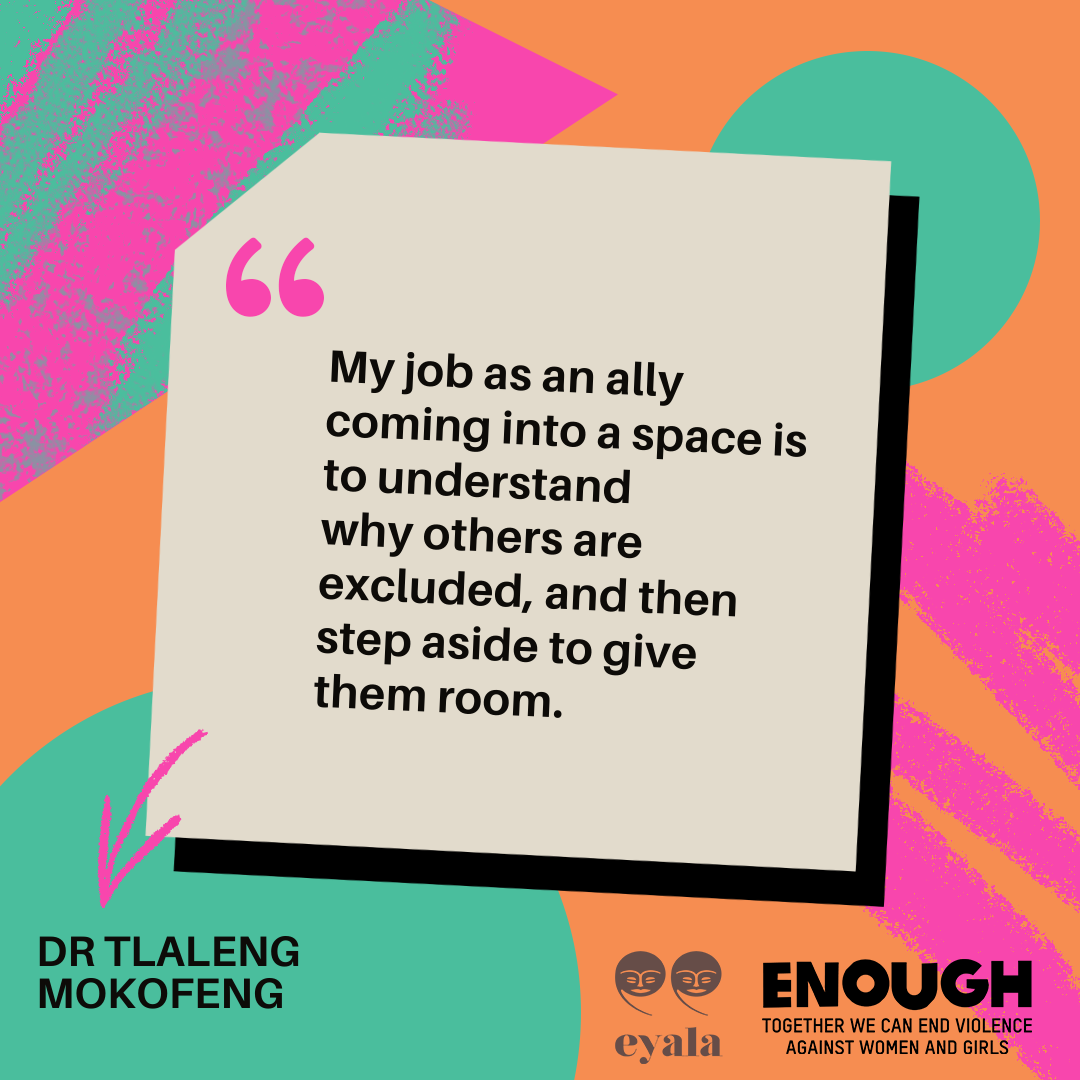African feminists are here to stay: Lessons from the #FlipTheScript campaign
/“Time moves slowly, but passes quickly.” I’ve admired the powerful simplicity of this sentence since I first read it in Alice Walker’s The Color Purple, and as Eyala marked its second birthday last week, the words rang truer than ever.
The two years since I launched this platform on African Women’s Day (31 July) of 2018 have been the most fulfilling, and the most frustrating, the most creative, and the least productive. I have reached remarkable clarity and experienced paralyzing doubts, almost every day, but I never wavered over my purpose. Eyala remains all about disrupting the narratives about African womxn’s lives and center the voices of those who dedicate their time, energy, and often lives, to improving them: African feminists.
So, when the opportunity to curate the #FlipTheScript campaign in partnership with Oxfam International’s Enough Campaign, I did not hesitate. I couldn’t think of a better celebration of African Women’s Day, and of Eyala’s birthday, than a series of conversations with African feminists about transgressing the norms and creating new narratives for African womxn. So, I said yes and delved right in.
And it was glorious! From 27 to 31 July 2020, I spoke with fantastic feminists from around the continent about the harmful social norms and narratives that hold African womxn back. They shared learning from their journeys of breaking the mold for themselves and others and gave enlightening advice for those who hesitate or struggle to flip the script on the expectations of how African womxn are expected to look, speak or act.
As usual, the wisdom of African feminists leaves me speechless (for real: I haven’t been able to say or write anything publicly for a full week after the campaign ended. Don’t judge my introverted mind!) I am incredibly grateful for the generosity of all the Afrifems who chose to share their thoughts throughout the week. Actually, let me start by (re-)introducing and thanking them:
Meet the amazing #Flipthesccript speakers
Many thanks to the two powerhouses who represented the new generation of Francophone West African feminists in the Facebook live conversation (in French): Emma Onekekou, founder of a rare LBTQ Francophone West African digital platform called EmmalInfos, and Bintou Mariam Traore, a young Ivoirian feminist who pays tribute to African feminist foremothers on her Facebook page Matrimoine Africain and sparked the impactful #VraieFemmeAfricaine campaign earlier this year.
Huge thanks to Rachael Mwikali, a fierce and fiery grassroots organizer working in Kenya’s informal settlements, for all the wisdom she shared during our Instagram Live conversation. Thanks to Enough Campaign Africa Lead Muthoni Muriithi for stepping in when Rachael’s internet was cut off. I’m grateful to Ghanaian feminist activist and writer Nana Darkoa Sekyiamah (whose blog Adventures from the bedrooms of African women is a gem!) for the thoughtful advice she shared during our Twitter chat.
Both Rachael and Nana Darkoa brought their insightful reflections to a BRILLIANT webinar I am proud to have moderated on African Women’s Day , where they were joined by South African medical doctor and sexual rights advocate Dr Tlaleng Mofokeng (you better read her book now!), Algerian artist and performer Souad Douibi (check her Instagram page!) whose 2016 street performance “Imra’a” (woman), prompted a public debate about womxn’s role in society, and Cleopatra Kambugu, a transgender woman who advocates for the rights of sex workers and sexual and gender minorities and works at East African activist fund UHAI EASHRI.
Any attempt at summarizing their contributions would be vain. Trust me, I tried. Instead, let me highlight my top takeaways from all the #FlipTheScript conversations we had in the lead up to African Women’s Day, with quotes that will blow your mind (and which you can download from this folder if you want to save or use them). I recommend that you watch the webinar recording!
Flipping the script is a matter of survival, not convenience.
This one may seem obvious, but I have learned the hard way that nothing goes without saying. So, I made sure to ask all speakers to explain what is even wrong with “the script” as we know it. And I’m glad I did. The speakers were adamant that social norms and stereotypical narratives about African womxn, such as the exclusionary romanticization of heterosexual marriage and of motherhood and the dehumanizing celebration of African womxn’s resilience, are harmful - not just inaccurate. Such narratives are not just rumors; they are, by design, political tools of domination on womxn’s bodies and lives.
For example, nearly all speakers spoke about the myth that homosexuality is un-African – a myth that is used to justify abuse against queer womxn and deny all Africans the comprehensive sexual education they need to have a safe and healthy sex life. They spoke out against the concurrent expectations of male domination in intimate and political spaces (and as Rachael put it, “the idea that men are the head and they are always right”). In addition, the de-prioritization of womxn’s issues to the benefit of causes that are said to be more urgent or essential (e.g. security, pan-Africanism, or, well, a global pandemic) was mentioned. As Emma explained, “such caricatures don’t only generate and perpetuate inequalities within our societies; they also distort the understanding that we African womxn have of who we and who we are supposed to be.”
African feminists flip the script in different ways, but always for the same fundamental reasons.
Every activist who took part in the campaign had impressive achievements to show for – just notice how long it took for each of them to introduce themselves. Before Cleo Kambugu, no Ugandan citizen had ever changed their gender marker on their passport from male to female. Nana Darkoa’s Adventures from the bedrooms of African women paved the way for many African sex-positive platforms we know today. Dr Tlaleng Mofokeng is the first African and the first womxn appointed United Nations Special Rapporteur on the Right to Health. I could go on and on, but you get the picture, right?
Well, none of them set out to be exceptional. I was struck by how consistently these extraordinary womxn said their embracing activism was the result of them standing up for themselves and their peers, and for what they believed was right. They were simply claiming their right to exist, enjoy their human rights, to express themselves freely, and live a life rooted in joy and pleasure. As someone who has met a lot of womxn who don’t think they have “what it takes” to be a feminist, it was heartwarming to hear #FlipTheScript speakers insist on the importance for African womxn to unlearn the “Black girl magic” narrative and remember that we are all able to change the world, just as we are.
The cost of flipping the script is high, but not higher than the cost of silence
A quote by Maya Angelou often ran through my mind during the campaign: “Each time a woman stands up for herself, without knowing it possibly, without claiming it, she stands up for all women.” Judging by what the panelists told me, Maya Angelou could have added, “…and she takes major heat for doing so.”
I shook my head so hard when Bintou Mariam Traoré told me of the harassment and threats she was subjected to after her #VraieFemmeAfricaine hashtag went viral. Once men understood that she wasn’t praising submissive women but using irony to denounce the absurdity of the gender roles African womxn are asked to abide by, she received all sorts of threats. Similarly, I got goosebumps when Souad Douibbi described the abuse she received during her 2016 performance, as she silently walked in the streets of Algiers and wrote the word Imra’a (woman) on various walls and benches in the city. The truth is, flipping the script comes at a cost, even when you try the non-confrontational route. But the panelists made it loud and clear: that the cost of silence and inaction is even higher.
Flipping the script is an inside job, too.
Have you noticed how often feminist movements replicate within their ranks the very oppression they are fighting in society? Looking in the mirror is hard, but I wanted to ask my guests to share their views on this issue. As a grassroots feminist organizer, Rachael Mwikali was particularly vocal on this point. She called out the class politics that keep our movements elitists, the infantilizing of younger feminists, and the damaging respectability politics that get (too many) women’s rights organizations to only support survivors with “good morals”, we all nodded and snapped our fingers in agreement.
Bintou deplored the mistrust between NGOs and feminists organizing online, while Emma called out English-speaking feminist organizations for designing events that make French-speaking feminists feel inferior. Nana Darkoa celebrated the increasing number of LGBTQI rights groups and intersectional spaces formed on the continent and said we needed more. Souad spoke about the power of art as a tool for activism and invited feminist movements to find ways of engaging artists that do not get in the way of their artistic freedom.
The speakers unpacked what feminist allyship means within our feminist movements. Dr Tlaleng and Muthoni reminded us that interrogating the power we hold is critical to creating inclusive spaces for our activism. It is particularly relevant today, with the COVID-19 pandemic forcing us to redefine self- and collective care, and to move most of our organizing online. Who gets to access digital feminist spaces? Rachael's internet connection failed her, and she was cut off just seconds after asking that very question.
So much food for thought as Eyala enters its third year!
The #FlipTheScript campaign coincided with Eyala’s birthday, which is traditionally a time of reflection for me (check out last year’s birthday post). I found the lessons from the campaign inspiring and challenging. Initially set up as a platform that harnesses the power of conversation to elevate African feminists’ voices, Eyala has grown to be so much more – a space for community and sisterhood.
As I reflect on the many changes awaiting Eyala in the coming year, the #FlipTheScript conversations are a reminder for me to anchor this platform further in my feminist vision: one that is proudly African, intentionally inclusive, bravely personal, boldly political, and rooted in kindness, love, and sisterhood. Let’s do this together, shall we?
Let’s connect!
Share your thoughts in a comment below, and let’s chat on Twitter, Facebook and Instagram @EyalaBlog. And feel free to download the quotes from this folder if you’d like to save or use them.





